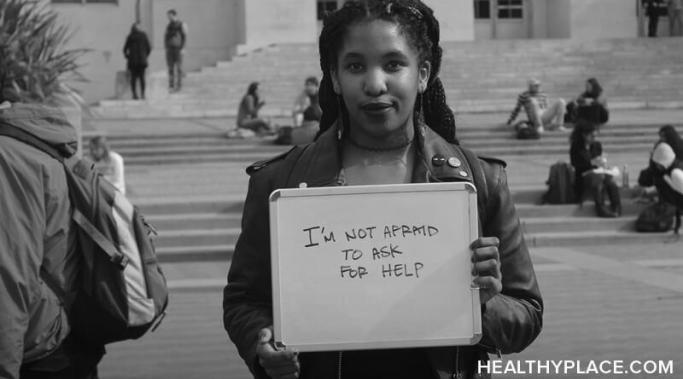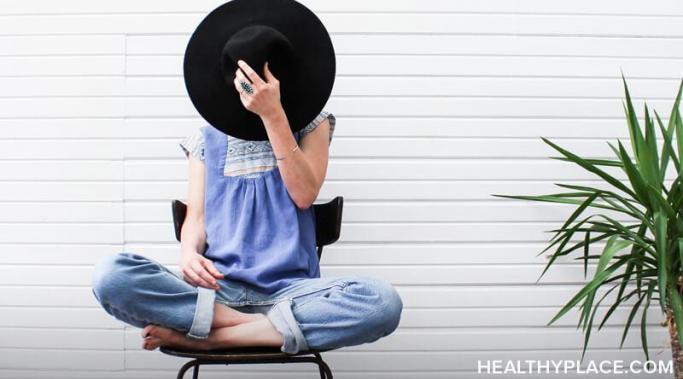Emotional resilience is very important to a person's wellbeing. It is a way to describe how well you mentally bounce back from upsetting situations and events. Resilience can be crucial in mental illness recovery where stress can aggravate symptoms. Being able to better handle stress improves stability.
Communication
A few months ago I underwent eye muscle surgery to better align my eyes. This is a problem I have struggled with since birth, so it really gave my confidence a boost to look in the mirror and see straight eyes. The surgery was elective and something I really had to ask for.
Being honest in therapy is much easier said than done. Even though we go to therapy because we want help, there may be certain things we've never discussed with anyone, let alone a complete stranger. Or if you're like me, it's not that you don't want to be honest, it's that you get all turned around in your head the moment you walk into the office and completely forget what you were going to say. For others, you may never have had a person you could truly be honest with, and now you aren't sure how to go about it.
Unfortunately, stigma is real, and it's dangerous. It is visible in public, and it comes full circle affecting patients and professionals alike. Stigma keeps mental illness in the dark and misunderstood, and often prevents sufferers from seeking the help they need.
I was diagnosed with schizoaffective disorder in my early 20s, and since then I’ve received many different reactions when disclosing my mental illness. Many people are supportive. Others are curious. Sometimes I face mental health stigma. Writing for HealthyPlace means my diagnosis is out there for anyone to see. I’m fine with that because I want to help and I want to fight stigma. However, in my day-to-day life, I choose whom I want to tell and when I want to tell them. Here are a few of the good, the bad, and the ugly experiences with disclosing my mental illness diagnosis, not necessarily in that order.
My recovery from mental illness started on the Internet. I knew I had an eating disorder before I was diagnosed. But before I took that giant leap and asked for help, my curiosity led me to the Internet. I first visited a forum and read others' inspirational stories of recovery from mental illness. Then finally, when I was ready, I researched my own eating disorder treatment options which put me on the path to my recovery from mental illness.
Sharing your struggle with mental illness is personal, so being open and transparent about mental illness can be extremely difficult. So much of the time there is a lot of shame, embarrassment, and guilt surrounding the struggle with mental illness that many who suffer keep it to themselves. But explaining to others what you are going through allows you to no longer have to hide and wear a mask and it gives you a support system that will help you feel as if you are not alone. I believe that sharing your story of struggle with mental illness can be such a powerful step forward and bring you closer to recovering from mental illness.
We should call the police in a mental health crisis only as a last resort. I spent some time at a psychiatric hospital that used off-duty but uniformed Marion County Sheriff's Deputies as security. I thought this was a bad idea because many mental health consumers have had bad experiences with the police. Even though I have no criminal record, I have a mild fear of police officers, especially when in crisis, because I've seen confrontations end badly (Mental Health Crises and Calling the Police). For example, one night a patient refused to go to his room, and security was summoned. One deputy pulled out his can of pepper spray and yelled, "You want some of this?" That's one reason why calling the police during a mental health crisis should be a last resort, especially in hospitals.
The first stage of mental illness is denial. It's also a common symptom of mental illness and a barrier to treatment. So how do you help people in denial of their mental illness? While it may seem hopeless, there's actually quite a bit that you can do.
Can you consent to abuse? Donald Trump's recent comments about grabbing women have sparked a question: "If his comments are such a big deal, why is 50 Shades of Grey a bestseller?" The problem is that in the novel, the main character consents to the mistreatment (Abusive Relationships – Why do victims stay?). Whether or not Christian Grey's conduct is abusive is a subject for another post, but it raises a valid question--Can you consent to abuse?









